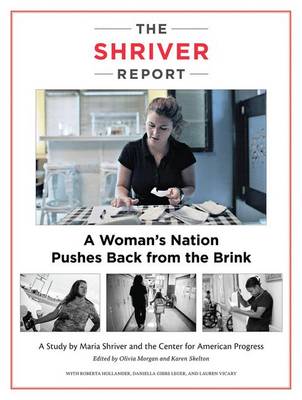Reviewed by empressbrooke on
At the same time, it's a bit rage inducing that so many of these solutions proposed would cost so little, and yet it's obvious that they'll never be implemented in this current political and economic climate. The Report is really diplomatic in this sense - while it does note that there's extreme partisanship and a damaging affinity for capitalism above all else in this country, it hardly spends any time at all discussing how these two factors are hurting women. The Report provides data (about women, the work women do, and the families women have), identifies what our country needs to improve the lives of women and their families, and then presents specific fixes. The authors don't shame our policy makers or our employers, they don't point fingers or assign blame, they just say, "Here's where we stand, and here's our way out."
The Report does a great job discussing how women of color specifically are faring, something that often gets lost when discussing women as a whole. It also does a great job of demonstrating how women and their families who live in poverty, or one crisis away from poverty, aren't there because of laziness or wanting a "hand out." In the same vein as I noted above, they don't even explicitly make this point too much - they just let the numbers do the talking. One would be hard pressed to read this book and think, "These people are really failing themselves," rather than, "Wow, we are really failing these people."
I was reminded of the book [b:Half the Sky|6260997|Half the Sky Turning Oppression into Opportunity for Women Worldwide|Nicholas D. Kristof|https://d.gr-assets.com/books/1320486170s/6260997.jpg|6444203], which had a global look at women's issues - both Half the Sky and this Report found that the key to a country's economic prosperity is investing in women. The more education and financial security a nation's women have, the more a country thrives. It's a message that America is ignoring right now at its own peril as it emphasizes profits at all costs, even when those costs are people.
Reading updates
- Started reading
- 5 May, 2014: Finished reading
- 5 May, 2014: Reviewed
